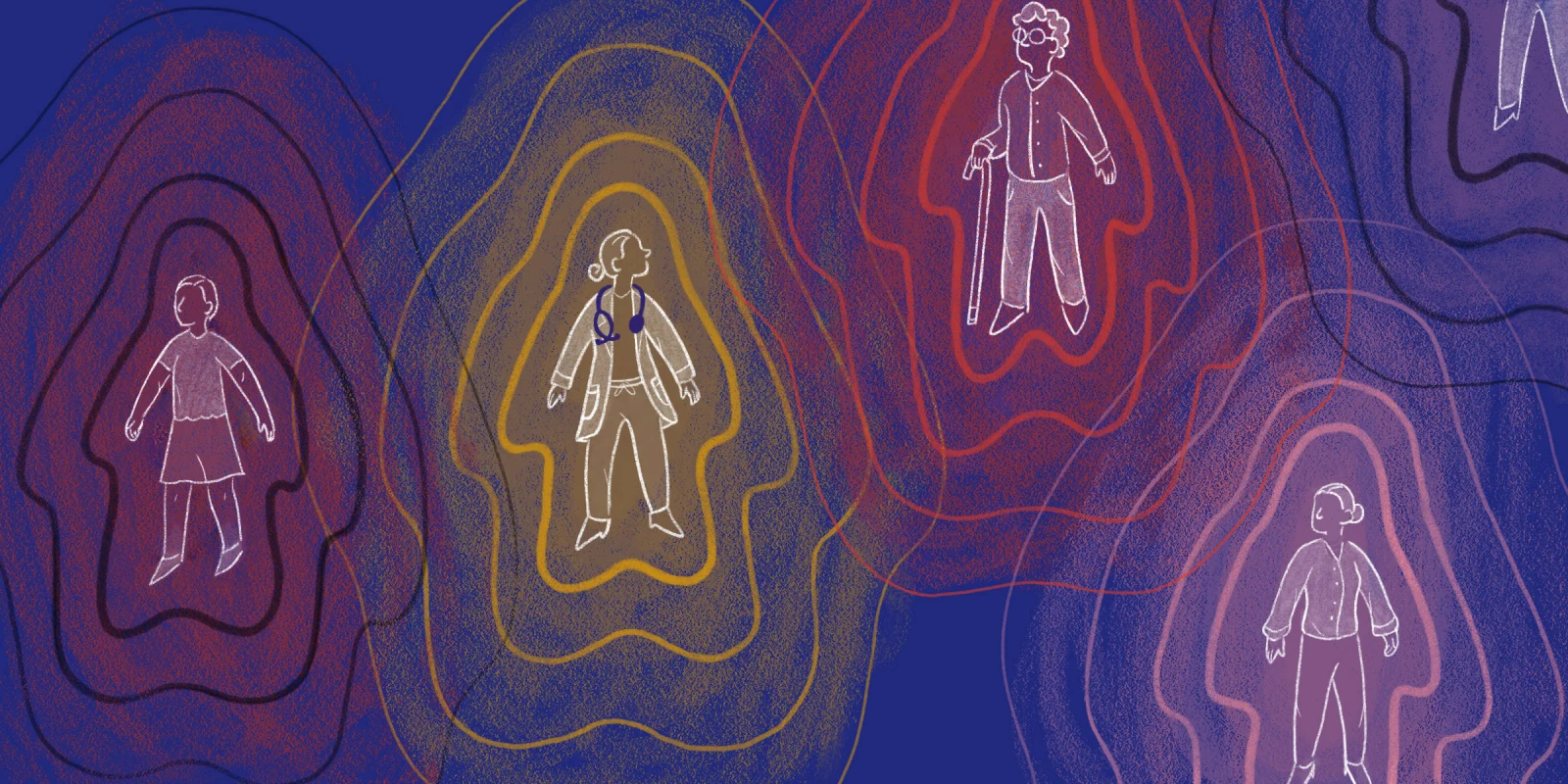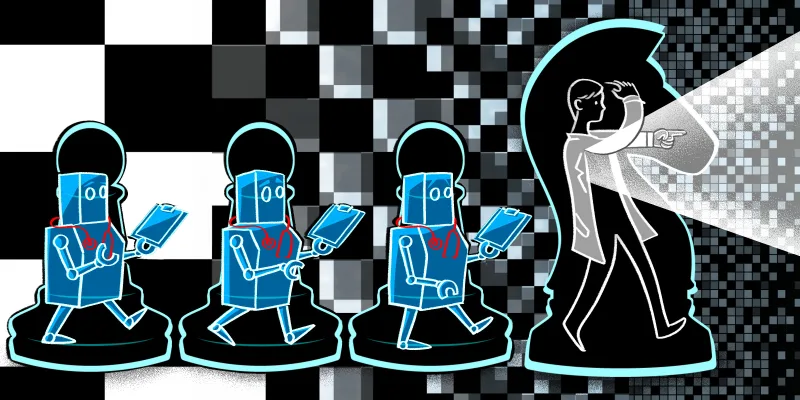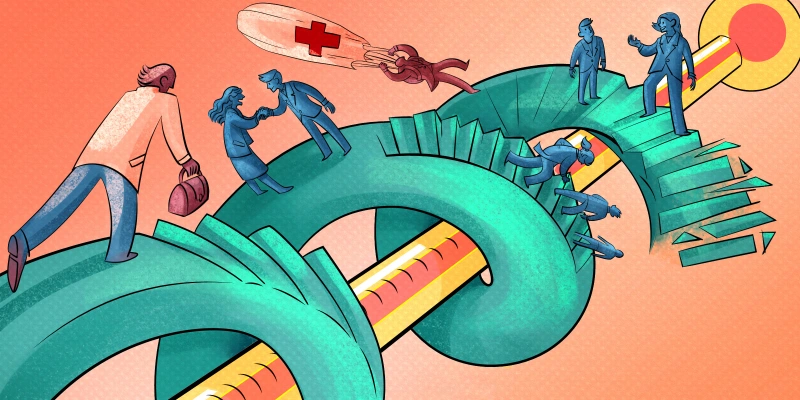I think time moves more quickly in the ED than in the outside world. Eight hours into a 12-hour shift, I often catch myself looking at the clock, surprised to realize so much of the day has gone by. The pace is frenetic at times — an endless cycle of meeting patients, ordering lab tests and imaging, circling back to update my patients, and trying to figure out whether they are safe for discharge or require a higher level of care.
When I was a medical student, I knew this to be part of the reality of EM, but I was still drawn to the field, seeing it as one where I could help my patients in their moments of greatest need, no matter the hour, their insurance status, or the specific concern bringing them to the ED. When residents I met on my clerkships asked me what field I wanted to go into, I was eager to share my enthusiasm for EM.
I was met with a lot of skepticism. The ED, everyone said, was the most stressful place in the hospital. The schedule is tough, patients wait days for inpatient beds, and most of all, they reiterated, you don't get to build longitudinal relationships with patients. Despite my enthusiasm for EM, the last point gave me a bit of pause. I was drawn to medicine because of the unique privilege of connecting with my patients during some of the most challenging moments of their lives, but I wondered whether shift work would limit my ability to build meaningful relationships with my patients.
This fall, I met Mr. Brown on a busy weekday shift, and we dove into a discussion about the shortness of breath that brought him into the hospital. After obtaining a history and completing the physical exam I needed to start creating a plan for his care, I turned to step out of the room. I paused when I saw that it looked like Mr. Brown had more he wanted to say.
"Was there anything else you wanted to share?" The floodgates opened. Mr. Brown's smile reached his eyes, and he started to tell me about the rotating cast of friends who had taken turns driving him to the hospital for chemotherapy for the past several years. He told me about the times he'd shown up for his friends, and how much it meant to him to have that care returned in his time of need. He told me about his spirituality, how he felt lonely at home, and he told me he was grateful to be here in the hospital, surrounded by people who were kind to him.
I returned to Mr. Brown's room often throughout my shift, updating him on his labs and imaging as they returned. He didn't have a blood clot in his lungs — hearing this, he grinned and told me about a time he worried for his son when he was in the hospital, and how his current fear paled in comparison of that. He would need to be admitted to the hospital — this evoked a resigned smile, and he told me he didn't really mind, since he'd had a hard time keeping his spirits up while alone at home.
At the end of my shift, I stopped by Mr. Brown's room to tell him my shift was ending, and my colleague would be taking over for the rest of the night. Soon he would be transferred to the inpatient floor, where a new team would continue investigating the source of his shortness of breath.
"Already?" he asked. "But we've gotten to know each other now!"
"I know," I said. I felt the same way — in one short afternoon, Mr. Brown and I had traversed the full spectrum of human emotions together, discussing the people he loved, the things he feared, and what mattered most to him.
Now, as an EM intern, I've realized that the depth of a relationship is not only contingent on recurrent daily interactions. In the ED, within minutes of meeting my patients, we discuss the most intimate details of their lives, including their bodily functions, the pains that wake them up at night, the beloved family members who are waiting anxiously for an update on their care, and their fears that they may not get better. Here too, time in the ED seems to move more quickly than in the outside world; instead of building trust and relationship over days or years, in the ED, we ask our patients to entrust us with their secrets, hopes, and fears within minutes of meeting. It's an honor to be the keeper of these details.
I probably won't see Mr. Brown again, unless the next time he comes into the ED happens to line up with one of my shifts. But interactions like these have reshaped my sense of where in medicine we can build meaningful relationships with our patients. When medical students interested in EM express their concern that they won't get to know their patients well, I am quick to encourage them to reconsider the depth of relationship that may be possible to achieve during a single shift.
It's true, working in the ED can be stressful, and it can feel like there are not enough hours in a shift to complete all that needs to be done. Now halfway through intern year, I have a new appreciation for this reality. Simultaneously, I've learned more from my patients in the ED than I ever imagined possible, and many times, this has stemmed from just listening to what they are trying to say— sometimes in their direct answers to my questions, and other times, in what hangs in the air unsaid as I reach for the door. Medical students, if you're considering EM, this is a good specialty. If you're looking for a field of medicine where your desire to hear your patients and connect with them can grow and flourish, even within a fast-paced shift, EM may the right field for you, too.
Dr. Anjali Misra is an EM resident in Boston, MA. She is passionate about health equity, prehospital care, and public health. She is a 2024-2025 Doximity Op-Med Fellow. All names and identifying information have been modified to protect patient privacy.
Illustration by Diana Connolly







